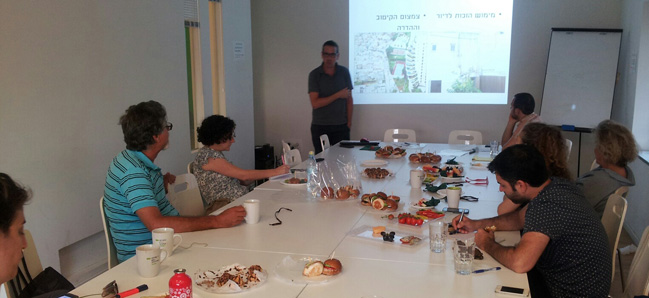
On a number of hot-button issues – including discrimination against minorities and women; religious freedom; the centralization of power and resources; and others – Israelis want real and lasting political change. At the national level, however, change is often difficult and slow on even the smallest of issues. The increasingly polarized nature of Israeli politics makes gridlock almost as likely in Jerusalem as in Washington, DC.
But politics at the local level provides an avenue to promote civic engagement and increase residents’ motivation to participate in the policy and decision-making processes that have a direct impact on their daily lives. Additionally, changing policy and practice at the local level can often provide a testing ground for change that can later be adapted nationally.
These days, SHATIL spends much of its time emphasizing the municipal arena, where many critical issues adversely affecting the vibrancy of Israeli democracy are debated and addressed. Decisions about land-use, minority rights, centralization of power, women’s rights, and violation of civil and religious freedom – from Yerocham to Beit Shemesh – are playing out neighborhood by neighborhood in ways that directly affect Israel’s future.
As part of this focus, SHATIL is holding trainings for municipal council members in different parts of the country. Last month, after the passage of the new planning reform law that transfers authority for planning decisions from the regional to the local level, SHATIL – in collaboration with the Society for the Protection of Nature in Israel, the Coalition for Affordable Housing and Tel Aviv University’s Hagar Center – held two training sessions on planning with municipal council members. The council members are also members of the local planning committee from Tel Aviv, Holon, Givatayim and Rehovot.
SHATIL’s trainings are filling an important need. “It’s amazing to see how elected officials who hold such power don’t have even basic knowledge and understanding of issues that determine the fate of each one of us,” said SHATIL Housing and Planning Coordinator, Omer Cohen.
The officials charged with making local planning and building decisions learned about housing and zoning laws including: their ability to require rental units in housing built on municipal land; designating public housing; obligating public participation in planning; requiring approval of the Ministry of Agriculture, which determines whether existing trees can be cut down or not; the ability of the city council to debate key projects; and more. Participants were enthusiastic and asked for additional sessions.
SHATIL will continue to provide trainings in planning issues to municipal council members and activists throughout the country.
